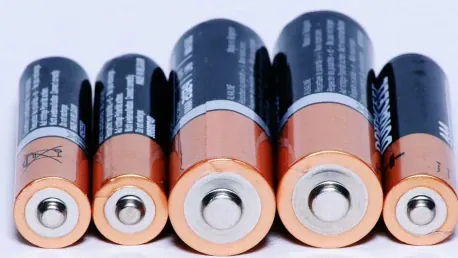In a groundbreaking development for the energy storage industry, Hindustan Zinc Limited (HZL) has announced a strategic partnership with Jawaharlal Nehru Centre for Advanced Scientific Research (JNCASR) to develop and commercialize next-generation zinc-based battery technologies. The collaboration is aimed at providing a viable alternative to the widely-used lithium-ion batteries, which are plagued by issues such as scarcity, high cost, and safety concerns. This strategic alliance is marked by a Memorandum of Understanding (MoU), setting the stage for a series of research and development initiatives focused on leveraging the advantages of zinc to transform the energy storage market.
HZL, known as India’s largest and the world’s second-largest integrated zinc producer, sees enormous potential in utilizing zinc’s abundant resources to address the challenges posed by lithium-ion batteries. Zinc-based batteries are not only cost-effective but also boast durability and safety features that make them highly attractive for a variety of applications. Industries ranging from defense and aerospace to renewable energy have already begun to explore zinc-based solutions. Through this collaboration, HZL and JNCASR aim to further accelerate the adoption of these technologies, enhancing the sustainability and efficiency of energy storage systems.
Leveraging Zinc for Energy Storage
The core focus of the collaboration between HZL and JNCASR will be on several key areas. One primary objective is the development of zinc alloys to be used as anodes in both zinc-ion and zinc-air batteries. This initiative is significant because using zinc as an anode material can potentially increase the lifespan and robustness of the batteries, offering a reliable alternative to lithium-based systems. Additionally, the partnership aims to create high-performance electrolytes to enhance the overall efficiency of zinc-based batteries. With the right electrolytes, these batteries can achieve higher energy densities and better performance metrics, making them suitable for a wider range of applications.
Another critical aspect of the partnership is the focus on designing effective recycling processes for zinc-metal-based batteries. Recycling is a crucial component of sustainability, and by developing efficient methods to recycle zinc batteries, HZL and JNCASR aim to minimize environmental impact while maximizing resource utilization. This initiative is closely aligned with global efforts to promote circular economies in the energy sector. The partnership’s focus on recycling not only addresses the end-of-life challenges associated with batteries but also enhances the overall sustainability of zinc-based energy storage solutions.
Industry Implications and Future Prospects
Hindustan Zinc Limited (HZL) has announced a significant partnership with the Jawaharlal Nehru Centre for Advanced Scientific Research (JNCASR) to develop and commercialize advanced zinc-based battery technologies. This strategic alliance aims to offer a robust alternative to lithium-ion batteries, which face challenges like scarcity, high costs, and safety issues. Marked by a Memorandum of Understanding (MoU), this collaboration will spearhead research and development initiatives to leverage zinc’s advantages and revolutionize the energy storage market.
HZL, India’s largest and the world’s second-largest integrated zinc producer, recognizes the vast potential of zinc to tackle the limitations posed by lithium-ion batteries. Zinc-based batteries are not only affordable but also feature superior durability and safety, making them appealing for various applications. Industries like defense, aerospace, and renewable energy are already exploring zinc-based solutions. Through this partnership, HZL and JNCASR aim to boost the adoption of zinc battery technologies, thereby enhancing the sustainability and efficiency of energy storage systems.









